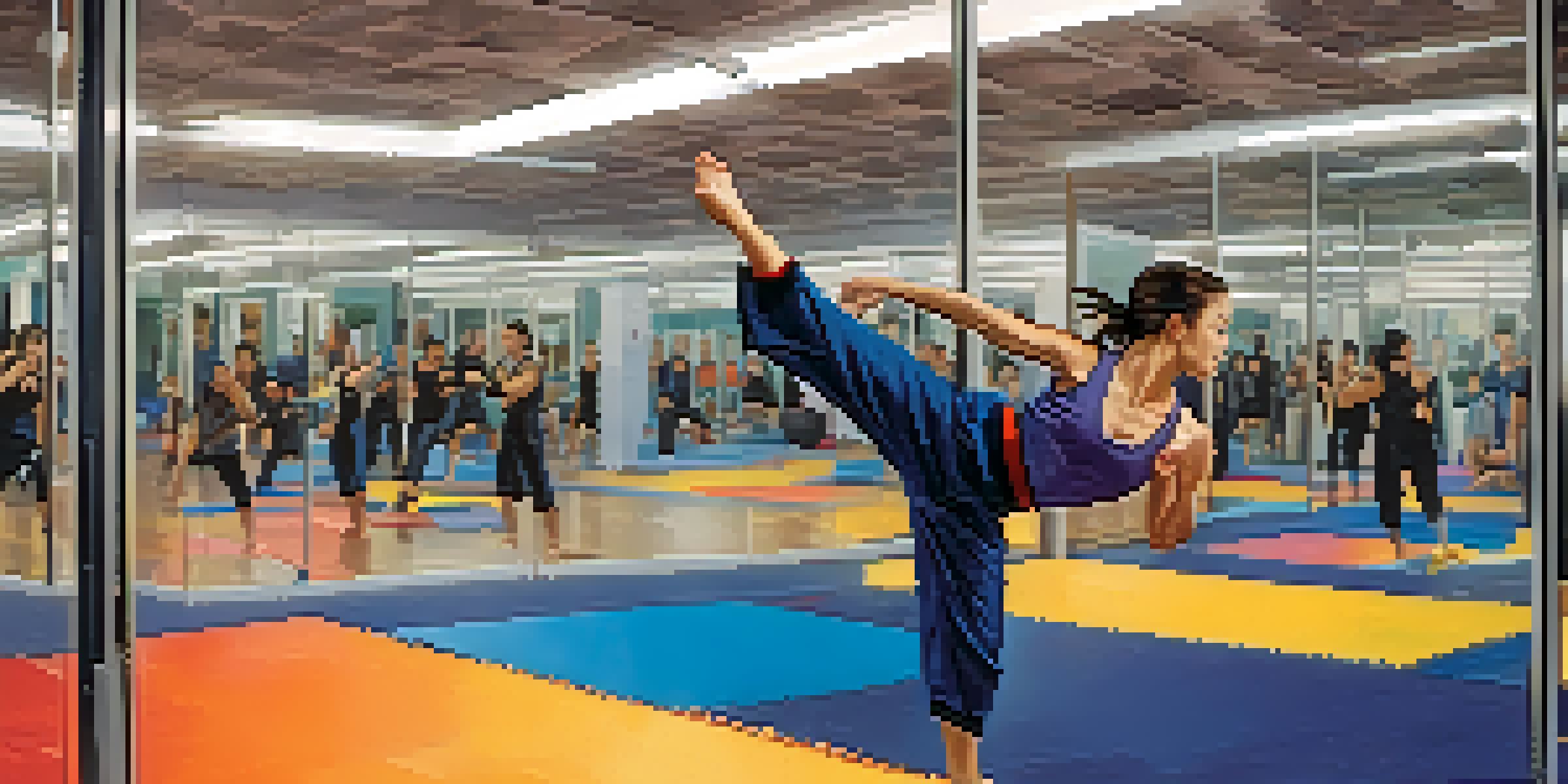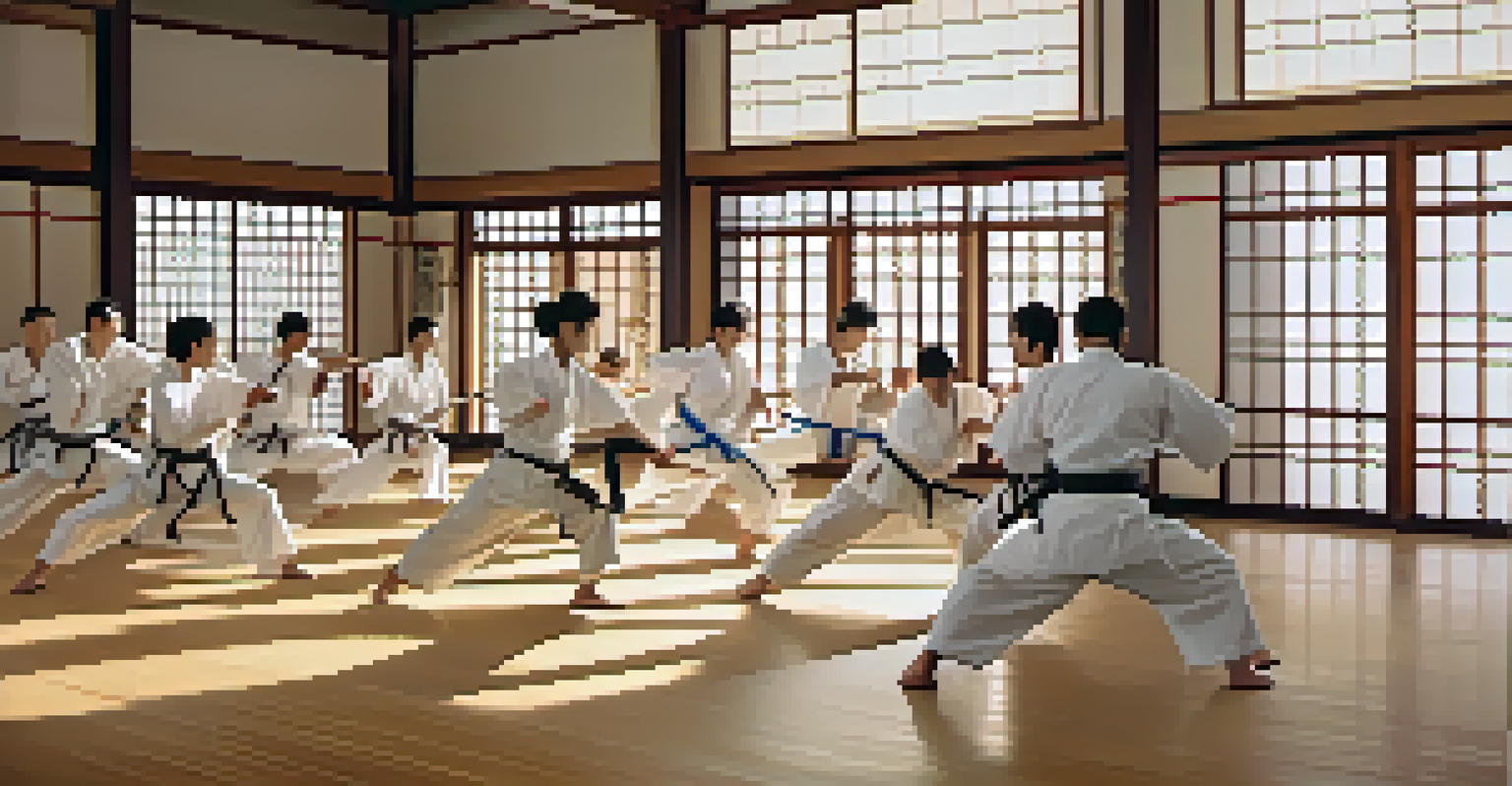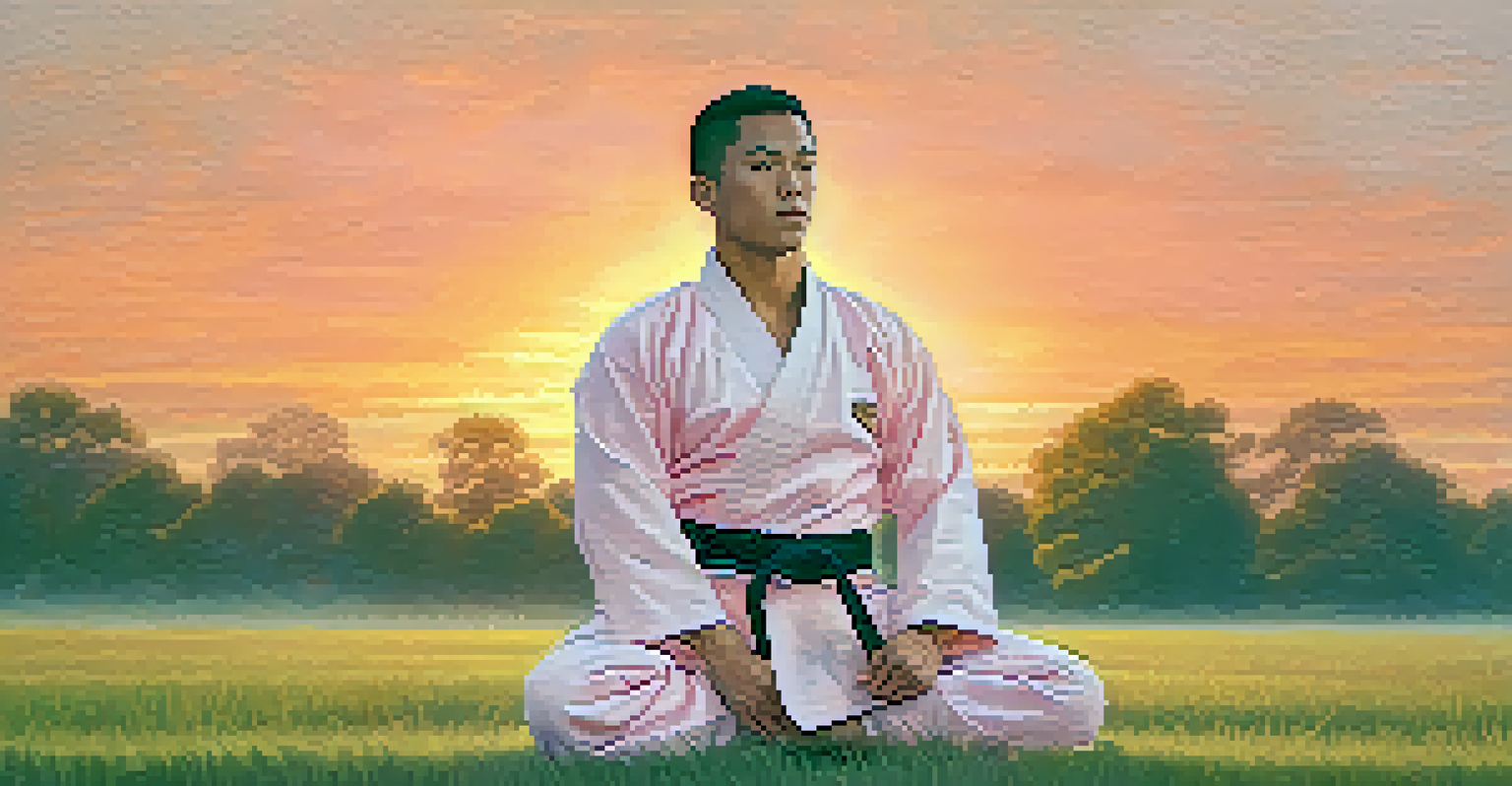Martial Arts and the Science of Stress Reduction Explained

Understanding Stress: The Body's Natural Response
Stress is our body's way of reacting to challenges or threats. It triggers a complex response, often referred to as the 'fight or flight' mechanism. This involves the release of hormones like adrenaline, which prepares us for action but can leave us feeling overwhelmed if not managed properly.
It's not stress that kills us, it’s our reaction to it.
While a little stress can be motivating, chronic stress can lead to serious health issues, including anxiety and depression. The key is finding effective strategies to manage stress levels. This is where martial arts come into play, offering a unique blend of physical activity and mental discipline.
By practicing martial arts, individuals can learn to harness the stress response, turning it from a negative experience into a powerful tool for personal growth and resilience.
Martial Arts: A Holistic Approach to Well-Being
Martial arts encompass a wide range of disciplines, from karate to tai chi, each promoting physical fitness and mental clarity. These practices encourage mindfulness, helping practitioners to focus on the present moment and detach from stressors. This is particularly beneficial in today's fast-paced world, where distractions are everywhere.

The movements in martial arts require concentration and precision, allowing the mind to break free from everyday worries. As you engage with your body, you create a natural escape from the mental clutter that can lead to stress.
Martial Arts Manage Stress Effectively
Practicing martial arts can transform the body's stress response into a tool for personal growth and resilience.
Moreover, the sense of community found in martial arts classes can foster social support, which is crucial for emotional well-being. Sharing experiences and challenges with fellow practitioners can alleviate feelings of isolation and anxiety.
Breathing Techniques: The Key to Calming the Mind
One of the most powerful aspects of martial arts is its emphasis on breathing techniques. Controlled breathing helps regulate the body's stress response, promoting relaxation and focus. For instance, many martial arts incorporate deep, rhythmic breathing that calms the nervous system.
The mind is everything. What you think you become.
These breathing exercises can be practiced both in and out of class, providing a valuable tool for managing stress in everyday life. Whenever you feel overwhelmed, taking a few deep breaths can ground you and restore your sense of control.
By integrating these techniques into your routine, you not only enhance your martial arts practice but also equip yourself with strategies to combat stress anytime, anywhere.
Physical Activity: A Natural Stress Reliever
Engaging in physical activity is one of the most effective ways to combat stress, and martial arts offers a dynamic outlet for this. The rigorous training involved releases endorphins, often referred to as 'feel-good' hormones, which can elevate your mood and reduce feelings of anxiety.
Additionally, the physical demands of martial arts can help channel negative energy into something constructive. As you punch, kick, or practice forms, you're not just working out; you're actively confronting and releasing stress in a controlled environment.
Breathing Techniques Foster Calmness
Incorporating controlled breathing from martial arts helps regulate stress responses and promotes relaxation in everyday life.
This combination of physical exertion and emotional expression can lead to a profound sense of relief and satisfaction, making martial arts a powerful ally in the fight against stress.
Discipline and Focus: Building Mental Resilience
Martial arts require a level of discipline and focus that can translate into everyday life. Practitioners learn to set goals, push through challenges, and maintain concentration, which can significantly reduce stress. This mental resilience is crucial when faced with life's ups and downs.
As you train, you develop a mindset that embraces challenges as opportunities for growth rather than sources of stress. This shift in perspective can fundamentally change how you approach obstacles, making them feel less daunting.
Ultimately, the discipline learned through martial arts fosters a sense of control and empowerment, allowing you to navigate stressors with confidence and poise.
Mind-Body Connection: Enhancing Emotional Awareness
Martial arts emphasize the mind-body connection, a crucial aspect of emotional awareness. Through training, you become more attuned to your body and its signals, which can help you recognize when stress is building. This heightened awareness allows for proactive management of stress before it escalates.
Practicing techniques like meditation and visualization within martial arts can further enhance this connection. These practices promote emotional regulation, enabling you to respond to stressors with calmness and clarity instead of reacting impulsively.
Discipline Builds Mental Resilience
The focus and discipline learned in martial arts empower individuals to approach life's challenges with confidence and poise.
In essence, martial arts teach you to listen to your body and mind, fostering a deeper understanding of how stress affects you and how to address it effectively.
Creating a Balanced Lifestyle Through Martial Arts
Incorporating martial arts into your life can lead to a more balanced lifestyle. Regular practice not only improves physical fitness but also encourages a holistic approach to health, including mental and emotional well-being. This balance is essential in managing stress effectively.
As you develop skills in martial arts, you also cultivate healthy habits, such as proper nutrition and regular exercise, which contribute to overall wellness. These habits create a foundation for resilience against stress, enabling you to handle challenges more gracefully.

By making martial arts a part of your routine, you're not just learning self-defense; you're investing in a lifestyle that prioritizes balance and well-being, paving the way for a more fulfilling life.